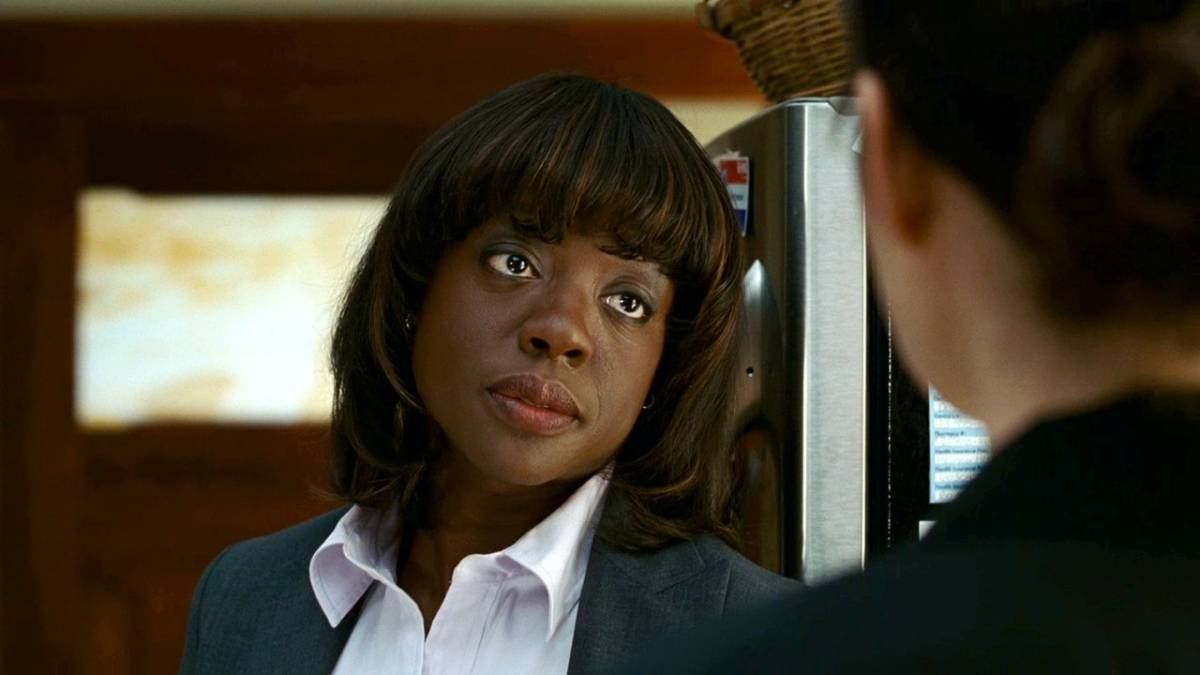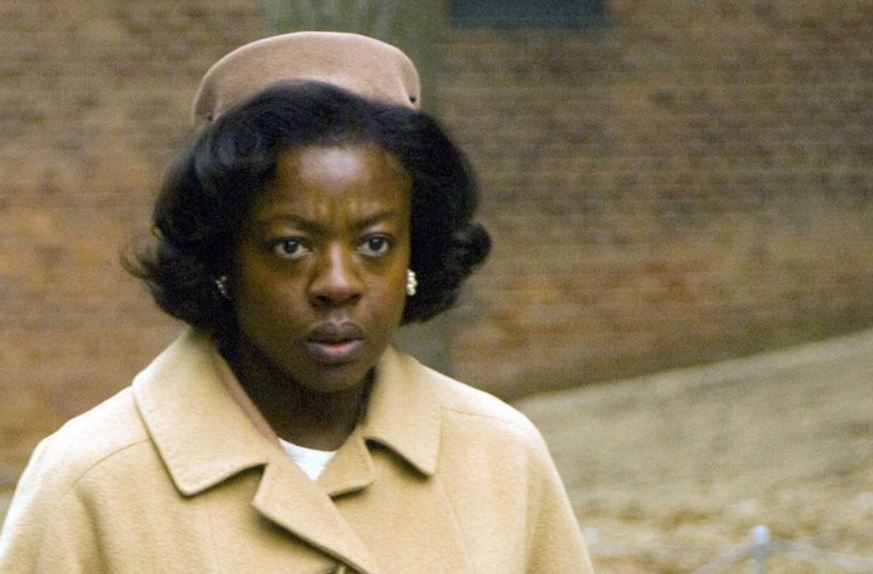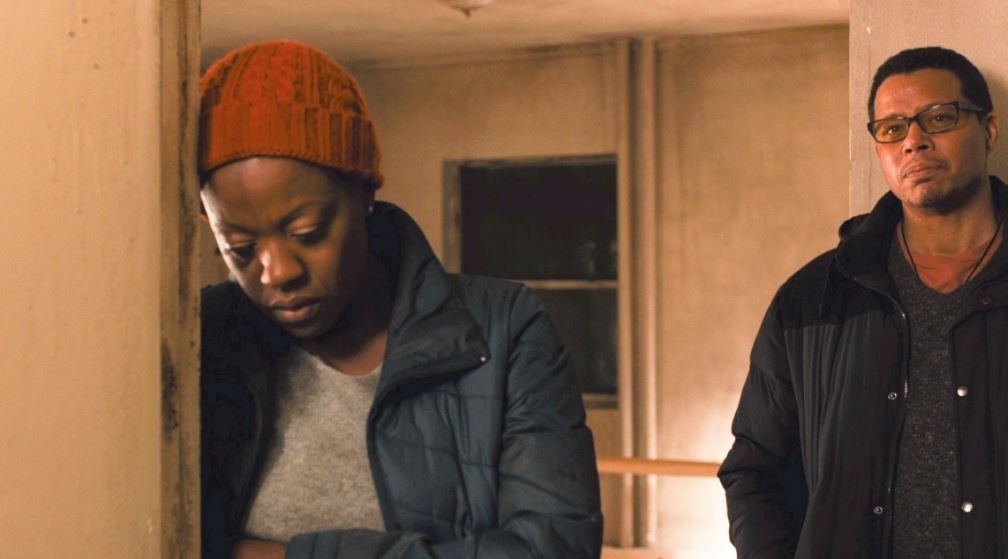If Viola Davis hasn’t won an Oscar by the end of this decade, then I think we ought to just go ahead and do away with these shitty awards once and for all.
The fact that she hasn’t won anything yet is mildly astonishing, although she does have two nominations to her credit. That’s not nearly good enough. Once again, TV seems to be ahead of the curve on the film industry, as she won her first Emmy (and the first Primetime Emmy Award for Outstanding Lead Actress in a Drama Series for a black woman) last year for How to Get Away With Murder.
The Oscars will catch up to, and eventually recognize, her brilliance. It’s just a question of when at this point. Although her film career took a little while to gain significant momentum, she is currently one of the most consistently amazing, reliable names in her industry. Even in material that is very clearly beneath her depth and versatility, she excels. Like any other great actor or actress, her best performances combines the material with her ability to bring an emotional, personal commitment to her characters that is almost intimidating.
It’s true that her movie career took a little time to get started. For a number of years, you could find her in small roles that were nonetheless memorable. Before her industry took her seriously as a leading actress, she developed a stellar reputation as a character actress. By the end of the 2000s, it seemed to be paying off. As it stands now, the upcoming release Fences, which will reunite her with Denzel Washington, is likely going to make it impossible for anyone but the most unhappy, embittered racist to at least acknowledge that she is one of the best working today.
It might even get her the Oscar she should have won over ten years ago for Doubt.
1. Antwone Fisher (2002)

By 2002, Davis had appeared in six films. Most of those films amount to small, but memorable performances. Her role as the title character’s twisted, unhappy mother amounted to another supporting turn, but if you want to look to the first time she displayed the brilliance that we now take for granted, I would make the argument for Antwone Fisher.
Her screen time is minimal, and it’s not the only memorable element in the directorial debut of Denzel Washington (who also appears in the film), but it’s one of the movie’s most devastating moments. The movie’s build to this pivotal scene is part of that. Davis giving us a character of profound, flawed energy is a bigger part of that scene being one of the most distinctive in the movie, if you ask me.
2. Disturbia (2007)

Disturbia, which amounts to a surprisingly effective, consistently tense thriller, is the main reason why I was immediately psyched for Viola Davis getting the lead for How to Get Away with Murder. She has the versatility to play an impressive variety of authority figures. Detective Parker in this Hitchcock-inspired (it’s not really a rip-off of Rear Window, as some have claimed, but the influence is impossible to ignore) doesn’t possess a great deal of depth as a character.
Even so, her low-key, slightly-weary badass is a solid, appealing contrast for the more manic, feverish performances that dominate the picture. Davis continues to play these authority figures with a reliable, multifaceted understanding of how to make them interesting. I’m fine with that, but I’d love it even more if she had a deeper, big budget hero cop shoot-em-up to call her own. Why the fuck not? The recent Lila & Eve is kind of what I’m talking about, but maybe some with a little more action.
3. Doubt (2008)

Doubt is one of the best movies of the 2000s. There are several compelling reasons for that. At least for me, Viola Davis is one of the biggest reasons of them all. The extraordinary thing about that is that we don’t meet her character until we are considerably immersed in this intense, deeply challenging drama. We have already met our other main characters, a priest and two nuns, played by Phillip Seymour Hoffman, Meryl Streep, and Amy Adams respectively.
We are already aware of the uncomfortable, often severe dynamics that exist in the various relationships between those three characters. We know that one character has been accused of inappropriate behavior with a child at the church where much of the film is set. We don’t know if it’s true. We never do. We are shaken and left stunned by the final fifteen minutes of this movie. Before that, as the story is beginning the final move towards its unforgettable, immaculate finale, we meet the mother of the child in question. This is Davis’ character. Despite being in the movie for less than ten minutes, her performance made enough of an impression that she received her first Oscar nomination. You could also argue that her career finally started to receive more invested recognition, which in turn led to her getting bigger and bigger roles.
However you feel about Oscars and awards, which we’ve already mentioned way too many times this month, I can promise the following: As extraordinary as all these elements in Doubt can be, nothing will haunt you more than Davis’ short, unforgettable scene with Streep. If I had to make a list of the ten best performances of all time, period, I have to imagine this one would be a major contender. To date, it’s also my favorite performance of hers.
4. The Help (2011)

Like a lot of people, I’m pretty sick of the “White people fix racism” narrative that continues to not only show up in films, but dominate the narrative to the point where everything becomes an infuriating, gross exercise in self-congratulatory, historically (and woefully) inaccurate bullshit. The Help, which led to Davis’ second Oscar nomination, is guilty of all of this to a certain degree.
However, I would still argue that The Help avoids these pitfalls better than most. To be sure, the catalyst created by Emma Stone’s character, as it relates to the battered, determined state of the civil rights movement in 1960s suburban Mississippi, is important. But the movie breaks away from what we traditionally expect from these movies by using this structure to make us understand who the true heroes are in this story. That’s where Viola Davis’ character comes in, as a maid who raises the White children of a woman who is suffering from postpartum depression. The courageous slave/maid/butler/etc narratives are generally the only ones Caucasian audiences pay attention to in droves. The fact that this happened with The Help overshadows its less problematic elements, which I will forever argue outweigh the parts most of us could do without.
Hopefully, those audiences left the movie with a deep appreciation for the fact that Stone’s character is ultimately unremarkable. It’s a good performance, and the character unquestionably means well, but her overall contribution to the wretched hell endured by Davis’ and Octavia Spencer’s characters is minimal. Catalyst aside, the movie makes it clear to us in no uncertain terms that Aibileen Clark (Davis) and Minny Jackson (Spencer) are the real heroes. Their characters have far more depth and fascination than what Stone is given to work with. Viola Davis in particular transcends stereotypes, and hits us in the gut during scenes that with anyone else, would come across as pretty flagrant examples of Oscar bait. She breathes unbelievable life into an archetype that is finally being made to share the stage with other personas that actors and actresses of color can, and should, play.
5. Prisoners (2013)

Viola Davis’ career in the 2010s has been interesting, and largely distinguished. Even in middling, tedious epics like Ender’s Game and Suicide Squad, she tends to remain one of the key standouts, when we talk about performances that amount to a good reason to see a movie in the first place. However, as it stands, her best work is on TV these days with How to Get Away with Murder.
But more often than not, you’re going to remember her in just about anything she graces. Prisoners is an interesting example. Largely because it’s one of the best overall movies she has done in this decade. It also has the benefit of offering a grounded, gripping performance that is distinctive in a film that boasts a cast with the likes of Hugh Jackman, Jake Gyllenhaal, Maria Bello, Terrence Howard, Melissa Leo, and Paul Dano.
She avoids a million clichés that plague a grieving parent trope, as does the rest of the cast, but there are moments throughout Prisoners in which she is the centerpiece of a complex, multi-character scene. This is even true for scenes in which that probably wasn’t the intent of director Denis Villeneuve. Those are the ones you want to watch out for. I don’t need to list them. You’ll know what I’m talking about, when you see the movie for yourself.
Some of the coverage you find on Cultured Vultures contains affiliate links, which provide us with small commissions based on purchases made from visiting our site. We cover gaming news, movie reviews, wrestling and much more.


